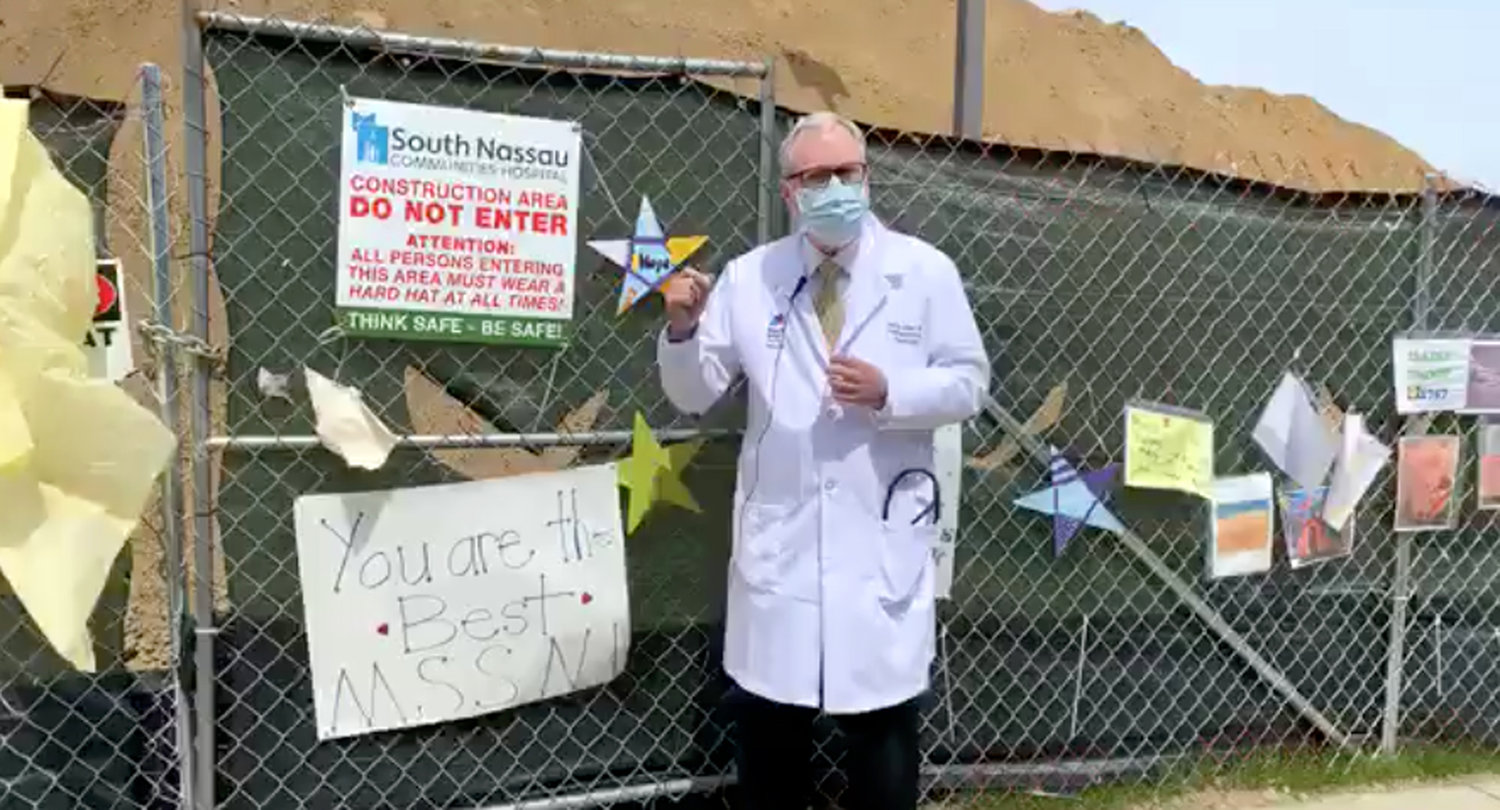South Nassau tries Covid-19 antibody treatment
On a chain-link fence that separates a construction project from Mount Sinai South Nassau in Oceanside, people have been pinning up homemade signs thanking the hospital’s workers.
That fence was the backdrop for a recent Facebook Live session in which three hospital officials offered hope amid the coronavirus crisis, speaking at length about an innovative treatment called convalescent plasma that is viewed as a potential cure for COVID-19.
Rabbi Dr. Aaron Glatt, the hospital’s chief of infectious diseases and chairman of the Department of Medicine, joined Dr. Adhi Sharma, its chief medical officer and vice president for clinical and professional affairs, and Joe Calderone, the hospital’s senior vice president for communications, for the April 17 talk.
Glatt explained that convalescent plasma works like this: patients develop antibodies when fighting off COVID-19, as they do with other viruses. Those antibodies can be extracted from a recovering patient with a high level of them through a blood draw. The plasma can then be injected into someone who is still fighting off the coronavirus, which should help the patient battle the illness.
The procedure had demonstrated “promising” results, Sharma said, cautioning that it remains an investigational treatment, not fully approved by the federal Food and Drug Administration.
Ideally, Glatt said, antibodies are extracted from patients three weeks after the onset of COVID-19 symptoms. At that point, he said, a patient is most likely to have a sufficient number of antibodies for extraction. Antibodies, he said, can be counted and quantified.
There is no risk to patients who are donating plasma and no indication the procedure would deplete their antibody stores, potentially leaving them susceptible to future infection, the doctors said.
It is unclear, Glatt and Sharma said, to what degree COVID-19 antibodies protect a patient from the disease, and for how long. It could be weeks, months or years. There is insufficient data on reinfection to know, they said.
Glatt and Sharma each said social distancing is key to ensuring that infection rates do not spike again over the coming weeks and months. They worry that people will ease up on the precautions they have been taking recently now that the weather is warming and more people are heading outside.
Without continued social distancing, there could be another surge in hospitalizations, which nearly overran hospitals like Mount Sinai South Nassau. At the peak of infection, the hospital, which normally sees about 300 patients, was seeing 500 patients.
“The staff went well above and beyond to maintain a hospital of 500 patients,” Sharma said, adding that the facility could not sustain itself for long with that number of patients.
Until “we totally clear [COVID-19] from the population,” Sharma said, people should continue social distancing. It will only be eradicated, he said, with a proven vaccine, which is 12 to 18 months away.
In addition to his duties at Mount Sinai South Nassau, Glatt is assistant rabbi of the Young Israel of Woodmere and Congregation Anshei Chesed in Hewlett.

 48.0°,
Overcast
48.0°,
Overcast 




